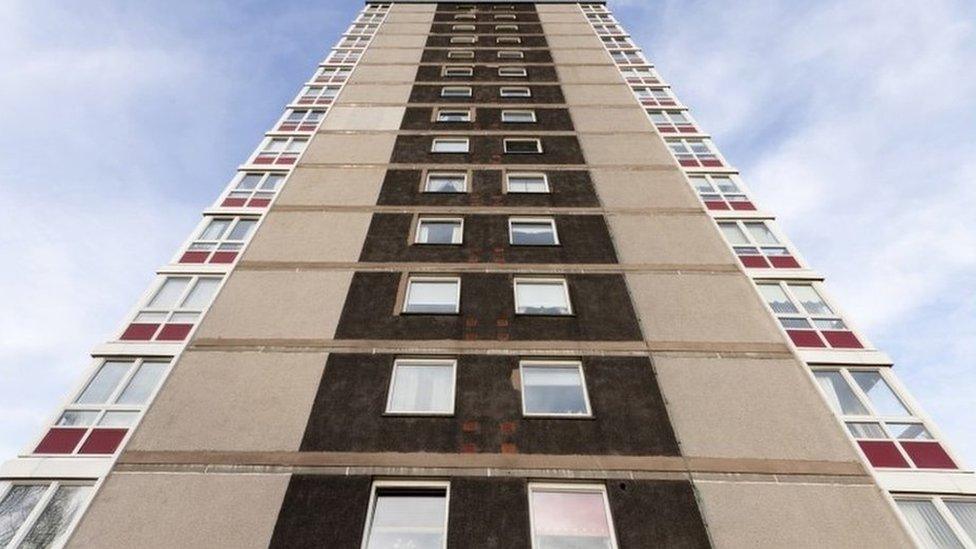Theresa May calls for tougher design rules to prevent 'tiny homes'
- Published
- comments

Theresa May has called for mandatory design standards for new houses, saying the number of "tiny homes" with little storage on the market is indefensible.
The prime minister said the lack of universal, enforceable rules on the amount of internal space is encouraging a "race to the bottom" among builders.
If all councils made those rules a pre-condition of planning, it would end the "postcode lottery", she argued.
MPs, meanwhile, say residents should be compensated for design flaws.
The cross-party Commons Public Accounts Committee said there needed to be a clear definition of what was acceptable in terms of the quality of new housing.
In a new report,, external it said it was particularly concerned about offices and commercial buildings being converted into residential properties.
The government is reviewing its policy of allowing the conversion of offices into homes without planning permission.
What are the rules?
Guidelines specifying minimum bedroom size, floor areas for storage and floor to ceiling heights for new builds in England have been in place for several years and were last updated in 2016.
But the Nationally Described Space Standards are not compulsory, and are only applicable if councils adopt them as part of their local housing plan.
What does the PM want?
In a speech to the Chartered Institute of Housing in Manchester, Mrs May said there are different standards in different areas.
While the government remained committed to a massive expansion in house building over the next decade, hoping to reach a target of 300,000 new homes a year by the mid 2020s, she said this cannot come at the expense of quality.
"I cannot defend a system in which owners and tenants are forced to accept tiny homes with inadequate storage," she said.
"Where developers feel the need to fill show homes with deceptively small furniture. And where the lack of universal standards encourages a race to the bottom."
The government wants to see design requirements incorporated into the planning process for the first time.
But MPs have expressed concerns that too many councils' housing plans are out of date and some town halls do not have a blueprint at all due to its cost and complexity.
The Public Accounts Committee said ministers were reluctant to intervene and use their powers to develop a plan centrally because of concerns over localism.
Why is housing such a key issue?
The Local Government Association, which represents more than 300 councils in England and Wales, said there needed to be more leadership from government on the issue so councils, developers and home buyers knew where they stood.
"High-quality homes for affordable and social rent are desperately needed across the country now," said Martin Tett, the organisation's housing spokesman.
"These standards should future-proof all new homes ensuring they are accessible for all ages and all markets, meet the housing needs of our ageing population and are environmentally sustainable."
Shelter said it applauded efforts to improve the quality of new homes but the reality was that most first-time buyers could simply not afford to get on the housing ladder.
It said ministers' efforts should be focused on removing disincentives in the market to build social housing.
"What this country needs - and what it wants - is a commitment from the top, from any prime minister, to a renewal of social housing," said its chief executive Polly Neate.